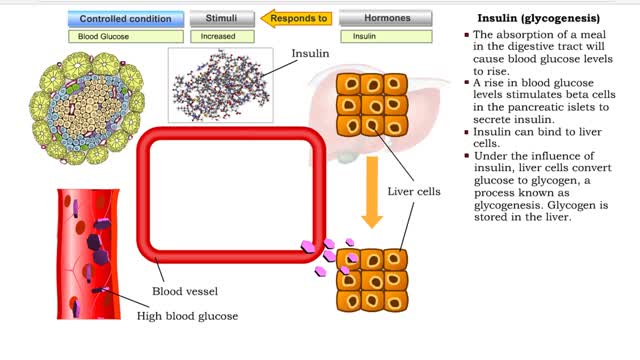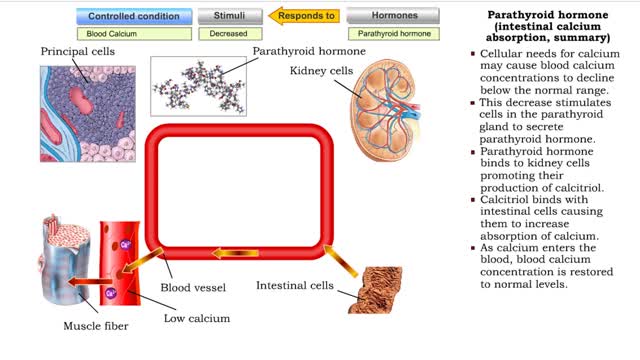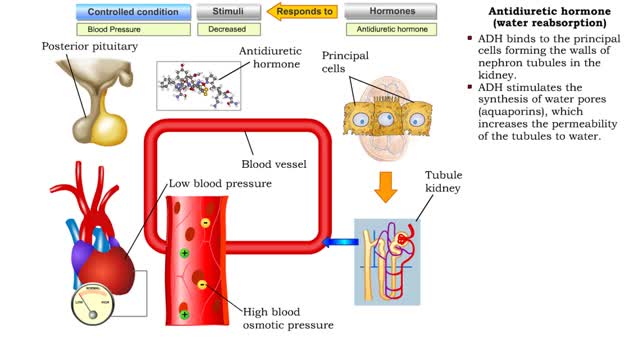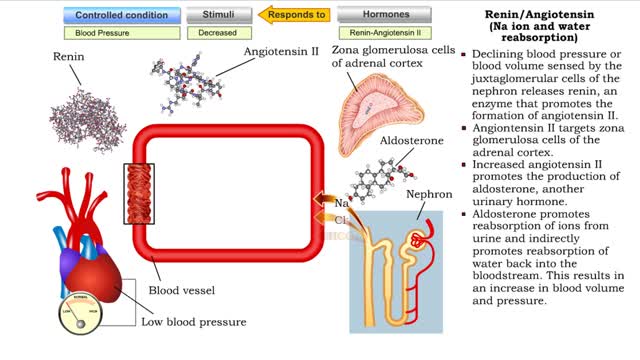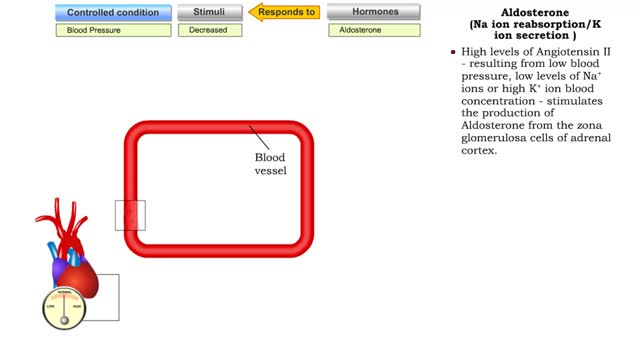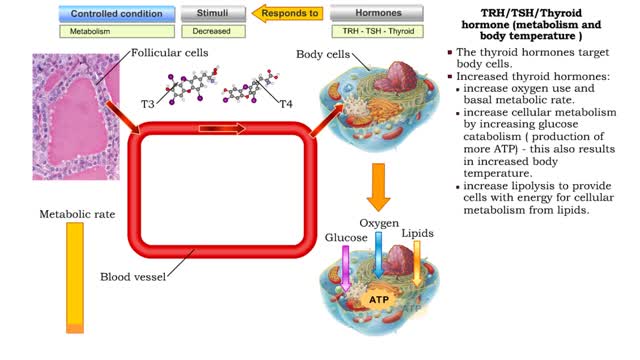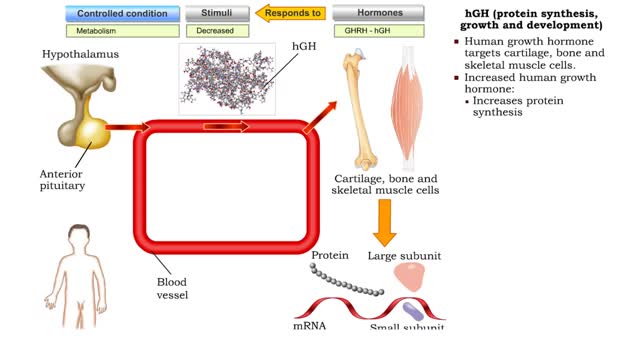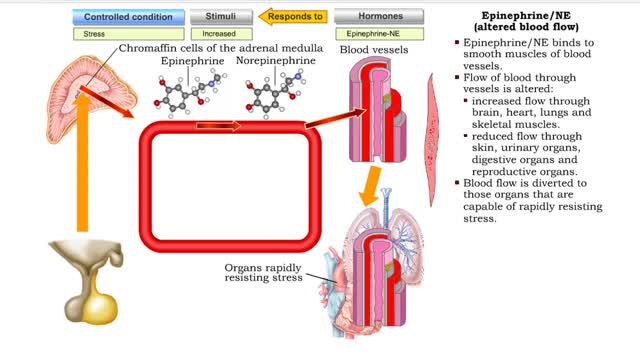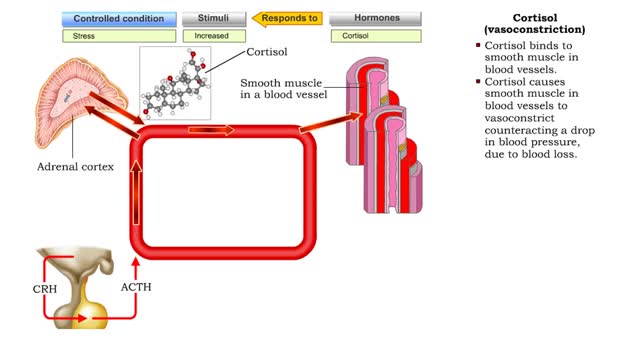Search Results
Results for: 'ED'
Insulin (glucose uptake by body cells), glycogenesis and lipogenesis
By: HWC, Views: 11178
Insulin is the regulator that allows the sugar from the foods we eat (be it a piece of cake or a stick of celery) to enter our tissues and become part of the metabolic process. Insulin is made by the Islets of Langerhans, which are found in the pancreas of every person. As we previously mentio...
Parathyroid hormone (bone resorption) & Calcitonin (bone deposition)
By: HWC, Views: 10814
• Cellular needs for calcium may cause blood calcium concentrations to decline below the normal range. • This decrease stimulates cells in the parathyroid gland to secrete parathyroid hormone. • Binding of parathyroid hormone to osteoclasts in bone tissue promotes bone resorption and th...
Antidiuretic hormone (vasoconstriction, water reabsorption & sweat inhibition)
By: HWC, Views: 10795
• Dehydration, blood loss, and low amounts of water in the blood can cause blood volume and pressure to decrease. • Neurosecretoxy cells in the posterior pituitary release antidiuretic hormone(ADH). • ADH binds to smooth muscle cells in blood vessel walls, stimulating them to vasoconstr...
Renin/Angiotensin (water gain from urine & Na ion and water reabsorption)
By: HWC, Views: 10922
• Sensing declining blood pressure or blood volume, juxtaglomerular cells of the nephron release renin, an enzyme that promotes the formation of angiotensin II. • Angiotensin II targets smooth muscle cells in blood vessels that provide blood to the nephron. • Angiotensin II causes thes...
Atrial natriuretic peptide (vasodilation) & Aldosterone
By: HWC, Views: 10665
• Certain situations will cause the body's stress level to rise. • increased blood pressure will stretch the atria of the heart, stimulating the secretion of atria natriuretic peptide (MP). • ANP causes muscle cells in blood vessels to relax. • Blood pressure is lowered as a result ...
By: HWC, Views: 10535
Thyroid hormone production • A decline in metabolic rate caused by increased metabolic need or physical exertion stimulates the production of thyrotropin hormone releasing (TRH) hormone from the cells of the hypothalamus. • Thyrotropin hormone releasing hormone targets the thyrotrophic ce...
hGH (protein synthesis, growth and development)
By: HWC, Views: 11375
• Increased GHRH, a hypothalamic releasing hormone stimulated by low blood glucose, physical exertion, and increased sympathetic stimulation, stimulates the production of human growth hormone (hGH) from the somatotrophic cells of the anterior pituitary. • Human growth hormone targets cartil...
Epinephrine/NE (heart rate, altered blood flow, glycogenolysis & bronchodilation)
By: HWC, Views: 10805
• Stressors trigger increased sympathetic stimulation from the hypothalamus to the chromaffin cells of the adrenal medulla. • This causes the immediate release of epinephrine and norepinephrine (NE). • Epinephrine/NE binds to the cardiac muscles of the heart. • Cardiac muscle cells ...
Cortisol (protein catabolism, gluconeogenesis, vasoconstriction & anti-inflammation)
By: HWC, Views: 10673
• Stressors stimulate production of hypothalamic releasing hormones, corticotropin releasing hormone, hormone (CRH) and adrenocorticotropic hormone (ACTH) stimulate. • These hormones promote increased production of 1 cortisol from the zona fasciculata cells of the adrenal cortex. • Cort...
Advertisement



